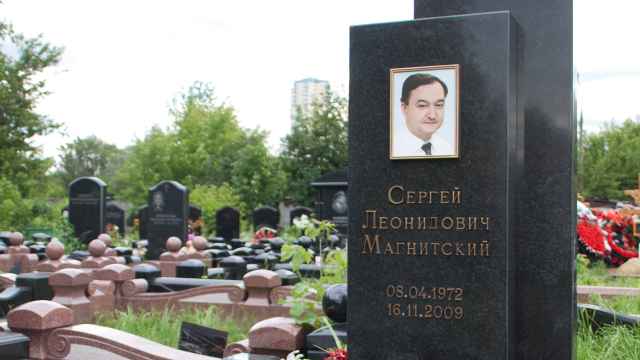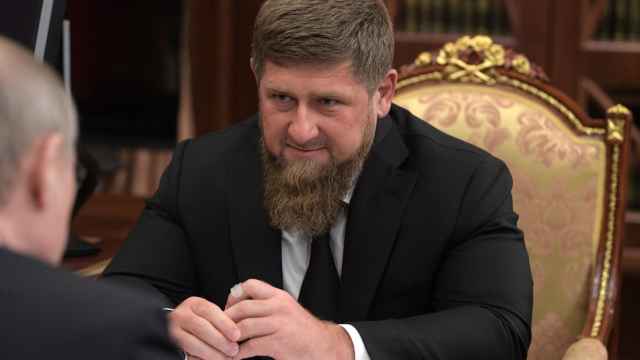Russia is seeking to expand wide-ranging sanctions it adopted in response to a U.S. human rights abuse law to all foreigners but will continue to limit its controversial adoption ban to U.S. citizens, according to legislation introduced Wednesday.
“Currently, sanctions for violating the rights and freedoms of Russians are only set for U.S. citizens,” said Russia’s lower house of parliament, the State Duma.
“It is proposed to extend these rules to all foreigners.”
The legislation submitted by Russia’s government would ban any targeted foreigner from entering Russia, seize their assets and ban their transactions and investments.
Legal entities controlled by the sanctioned foreigners would face suspensions of their activities, with the exception of political NGOs.
“Russian citizens’ rights can be violated not just by U.S. citizens, but also by those from other foreign states, as well as by stateless persons,” said the draft bill’s authors.
Non-U.S. citizens would not be subject to an adoption ban under the proposed expansion as that ban came in reaction to “an aggressive sanctions policy of a specified foreign state,” referring to the U.S.
Russia passed the so-called “Dima Yakovlev” adoption ban in 2012 in response to the U.S. Magnitsky Act, which blacklisted Russian officials implicated in human rights violations.
The law, which effectively broke the U.S.-Russian cooperation agreement on international adoptions, is named after a two-year-old Russian boy who died after being left unattended in a vehicle by his adoptive U.S. father.
The expanded “anti-Magnitsky” sanctions would need three votes of approval in the State Duma, one in the upper-house Federation Council and President Vladimir Putin’s signature to become law.
A Message from The Moscow Times:
Dear readers,
We are facing unprecedented challenges. Russia's Prosecutor General's Office has designated The Moscow Times as an "undesirable" organization, criminalizing our work and putting our staff at risk of prosecution. This follows our earlier unjust labeling as a "foreign agent."
These actions are direct attempts to silence independent journalism in Russia. The authorities claim our work "discredits the decisions of the Russian leadership." We see things differently: we strive to provide accurate, unbiased reporting on Russia.
We, the journalists of The Moscow Times, refuse to be silenced. But to continue our work, we need your help.
Your support, no matter how small, makes a world of difference. If you can, please support us monthly starting from just $2. It's quick to set up, and every contribution makes a significant impact.
By supporting The Moscow Times, you're defending open, independent journalism in the face of repression. Thank you for standing with us.
Remind me later.






